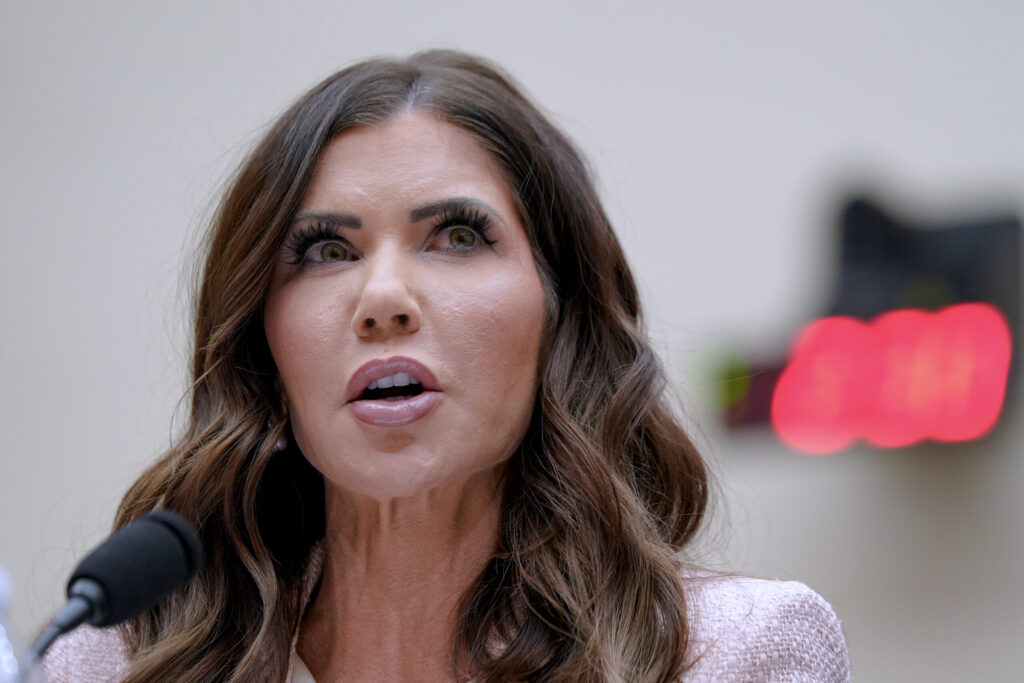Former 5th CD rep scrambles in bid to retake seat | A LOOK BACK
Thirty-Five Years Ago This Week: In a letter mailed to Republican Party activists, former GOP U.S. Rep. Ken Kramer announced that he was seeking reelection to the 5th Congressional District seat. Kramer retired from the 5th CD in order to run for the U.S. Senate the prior election cycle, but lost in that bid to Democrat Tim Worth.
Kramer, who had returned to practicing law in Colorado Springs, told The Colorado Statesman, “This decision is not made lightly. I am deeply concerned about what has been happening. I want to return to Congress to finish the job we started.”
Incidentally the letter arrived less than 24 hours after a Statesman reporter overheard Kramer telling Gov. John Love that he hadn’t made up his mind yet about the race. Kramer also told Adams County Republican Party activist Hal Shroyer that he didn’t know what his plans were in regards to a primary against incumbent U.S. Rep. Joel Hefley.
Kramer’s lack of transparency ruffled quite a few GOP feathers and most of his former high-dollar donors and high-profile supporters told reporters that they were firmly behind Hefley, including Phil Winn, Bill Daniels, Larry Mizel and John Fuller to name a few.
Winn told The Statesman that he had advised Kramer, who he called a friend, against dividing the district and causing a contentious race. Winn also argued that Hefley had been serving the district well and without and any major mistakes.
Former gubernatorial hopeful Bob Kirscht said he had also broached the subject with Kramer as he had personal experience in trying to run for a former seat after losing an earlier election. But Kirscht said that he too had been unsuccessful in changing Kramer’s mind.
Rodger Bailey, Kramer’s 1986 senate campaign manager told The Statesman that he’d also tried to talk Kramer out of of running again.
“I’m a friend of Hefley’s and I don’t want my name associated with Kramer’s current effort,” Rodger said. “I’m not involved in the race. I’m not tied to that kind of thing.”
Regardless of the frosty reception from party leaders, Kramer made public the results of an internal poll he’d commissioned in early November showing him easily defeating Hefley in a primary.
Twenty-Five Years Ago: The Colorado Student Assessment Program tests scores for fourth-grade children were so disheartening to Gov. Roy Romer that he said he feared the results would generate “destructive political controversy” when they were distributed to parents.
The CSAP tests showed that nearly half of the state’s fourth-graders earned inadequate reading scores and almost two-thirds earned sub-standard scores in writing.
“I think some parents are going to hit the roof when they see these results,” Romer said. “They’ll see a kid who usually brings home a C+ or B or even A grades, scoring ‘partially proficient’ in reading or writing, and they’ll be on the phone to the principal. And that’s exactly what should happen.”
But Romer urged parents to refrain from “pointing their fingers at teachers or administrators,” as the source of the education shortfall and instead work with teachers and, most of all, to work with their children at home.
Don Beck, a senior state executive for IBM, was one of the strongest proponents behind revising the K-12 education standards and CSAP tests into the measurement tools they were at the time.
“The new standards reflect the minimum skills that a worker must have in order to find employment in the modern job market,” Beck said. “Inadequate skills among the workforce have forced companies, like IBM, to put employees through remedial training for as long as 18 months.”
Rachael Wright is the author of the Captain Savva Mystery series, with degrees in Political Science and History from Colorado Mesa University and is a contributing writer to Colorado Politics and The Gazette.













